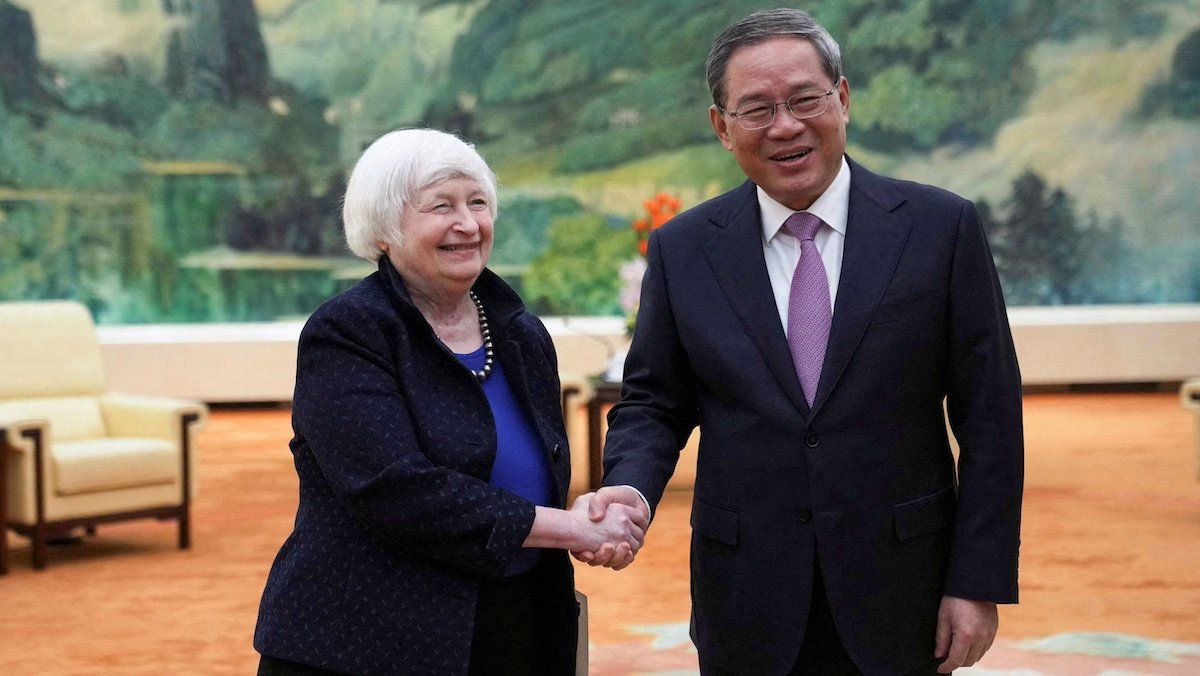During her weekend visit to Beijing and Guangzhou, US Treasury Secretary Janet Yellen emphasized that the US-China relationship is on a "more stable footing" – but there are still imbalances to address.
Chief among them: China's industrial overcapacity and its effects on the global economy. Yellen and Chinese Vice Premier He Lifengagreed to kickstart formal talks to address China’s growing overproduction of electric vehicles and solar panels, which the US says is distorting global markets and undercutting American jobs.
“We can only make progress if we directly and openly communicate with one another,” Yellen said. Chinese Premier Li Qiang called for a market-oriented view of production capacity, including cooperation in the green and low-carbon energy transition and a potential partnership to address environmental challenges.
Tough talk on Russia: Yellen dropped the diplomatic gloves when it came to Beijing’s economic and military partnership with Russia.
"We've been clear with China that we see Russia as gaining support from goods that Chinese firms are supplying to Russia," she declared, warning of "significant consequences" for any material support lent to Russia’s war efforts against Ukraine.
We’ll see if this changes China’s tune like it did after Russia’s invasion in 2022, when US officials say their strong warnings prompted Beijing to walk back plans to provide military equipment to Moscow.